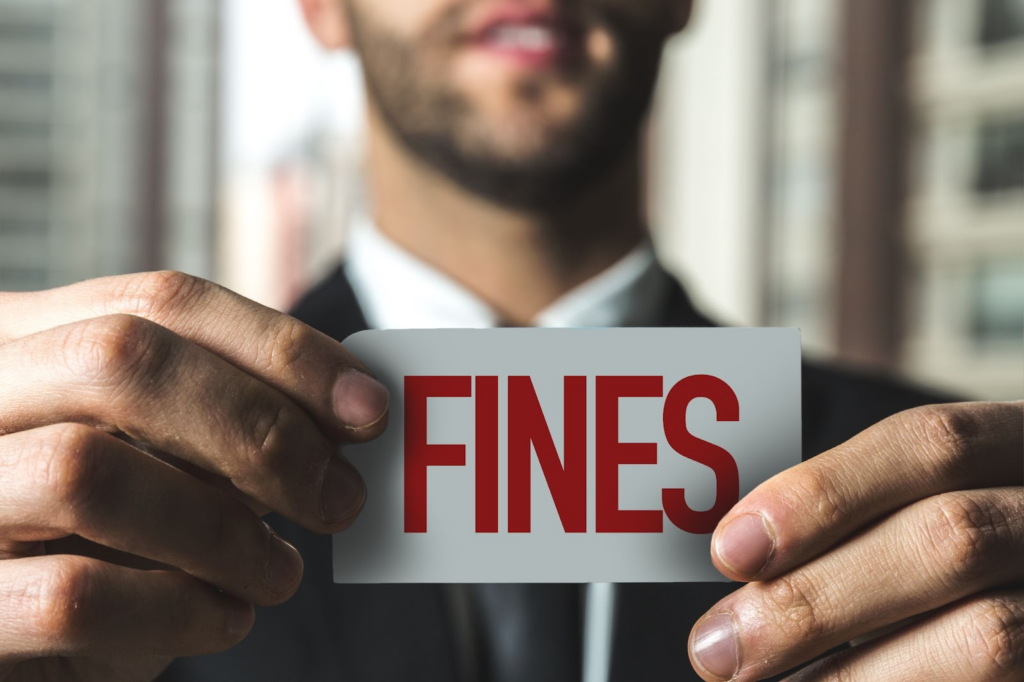Felony charges in the State of Texas are serious matters. A state jail felony can carry significant fines and jail time, along with collateral consequences that can wreak havoc on the rest of life. It is imperative that individuals dealing with a state jail felony charge understand their rights, their possible legal strategies, and the importance of a skilled attorney.
What we’ll cover here
- State Jail Felonies in Texas
- State Jail Felony in the Texas Penal Code
- Examples of a State Jail Felony
- Criminal Penalties for State Jail Felony in Texas
- Collateral Consequences of a State Jail Felony Charge
- Enhancement Factors for State Jail Felony
- Reclassification of State Jail Felonies for Repeat and Habitual Felony Offenders in Texas
- Effective Defense Strategies for State Jail Felony
- The Best Strategy If Charged for State Jail Felony in Texas
State Jail Felonies in Texas
Created in 1993 by the Texas State Legislature, state jail felonies carry the felony classification but do not result in a prison sentence. Texas associates state jail felony offenses with lower level drug, property, burglary, assault and several other crimes. State jail felonies are punishable by incarceration in a state jail facility for a term of six months to two years, and a fine of no more than $10,000.
State Jail Felony in the Texas Penal Code
The Texas State Penal Code describes a state jail felony and its punishments in the following sections:
Sec. 12.04. CLASSIFICATION OF FELONIES.
(a) Felonies are classified according to the relative seriousness of the offense into five categories:
- capital felonies;
- felonies of the first degree;
- felonies of the second degree;
- felonies of the third degree; and
- state jail felonies.
(b) An offense designated a felony in this code without specification as to category is a state jail felony.
Sec. 12.35. STATE JAIL FELONY PUNISHMENT.
(a) Except as provided by Subsection (c), an individual adjudged guilty of a state jail felony shall be punished by confinement in a state jail for any term of not more than two years or less than 180 days.
(b) In addition to confinement, an individual adjudged guilty of a state jail felony may be punished by a fine not to exceed $10,000.
Examples of a State Jail Felony
In Texas, several crimes fall under the classification of a state jail felony. Many such crimes have the potential for different classifications (second degree, third degree, state jail), based on the details of the crime and the criminal history of the offender. Some examples of Texas state jail felonies include:
- Theft of a firearm
- Animal cruelty
- Criminally Negligent Homicide (Criminal Code 19.05)
- False report or false alarm
- Improper video recording or photography
- Certain kinds of burglary
- Forging a check
- Interfering with child custody
- Evading arrest with a vehicle
- Theft of possessions valued between $2500 and $30,000
- DWI with a child passenger
- Credit card fraud
- Unlawful possession of a ballet or carrier envelope
- Unlawful disclosure of certain confidential information
- Certain offenses under the Texas Food, Drug, and Cosmetic Act
- Unauthorized manufacture of a dangerous drug
- Certain kinds of unauthorized timber harvesting
- Commercial bribery
- And much more

Criminal Penalties for State Jail Felony in Texas
A conviction for a state jail felony carries the following penalties:
- up to $10,000 in fines and/or
- between 180 days ( 6 months) and 2 years in jail.
In contrast to other felony charges, there is no parole for state jail convictions. One cannot shorten his or her sentence by accumulating good time credits. Instead, they must rely on Diligent Participation Credits, which can shorten a jail sentence by up to 20 percent. These credits include the completion of an educational, vocational, or treatment program, active involvement in a work program, or other requirements.
Sometimes however, the court makes allowances for probation. Probation, or community supervision, allows certain felons the ability to serve their time outside of jail if they abide by several conditions of probation. Violating these conditions can lead to arrest, worsening penalties and imprisonment.
Collateral Consequences of a State Jail Felony Charge
In addition to official penalties handed down by the court, state jail felonies carry a number of collateral consequences that affect other parts of an individual’s life, including:
- Difficulty finding or maintaining certain kinds of employment
- Loss of immigration status
- Loss or non-renewal of professional licenses
- Restricted mobility (travel restrictions)
- Narrowing of financial options (difficulty obtaining approval for loans)
- Decreased access to welfare benefits or other community services
- Inability to own a firearm
- Disallowed from voting
- Marital, family, community, and other relationship problems
- A negative impact on your reputation
The negative effects of felony charges stretch beyond the initial fines and jail time. They can severely impact one’s access to resources and upward mobility and create lingering conflict within the individual’s personal life.
Enhancement Factors for State Jail Felony
Certain factors may precipitate the enhancement of a state jail felony. Consequently, the penalties for this enhanced charge will increase. The Texas State Penal Code explains these factors in the following excerpt:
(c) An individual adjudged guilty of a state jail felony shall be punished for a third-degree felony if it is shown on the trial of the offense that:
- a deadly weapon as defined by Section 1.07 was used or exhibited during the commission of the offense or during immediate flight following the commission of the offense, and that the individual used or exhibited the deadly weapon or was a party to the offense and knew that a deadly weapon would be used or exhibited; or
- the individual has previously been finally convicted of any felony
To summarize, the court may change a state jail felony to a third-degree felony if the offending individual holds a prior felony conviction or if the individual used a weapon during or just following the crime in question.
Some examples of aggravating factors that can change a state jail felony into a third-degree felony include:
- If a person received a conviction for Continuous Sexual Abuse of a Child
- Conviction of Continuous Trafficking of Persons
- Forgery if the victim was elderly (Penal Code 32.21(e-2))
- Theft from a nonprofit (Penal Code 31.03(f)), and
- Possession of lewd materials depicting a child if the defendant has a prior offense (Penal Code 43.262(c)(1)).
- If a person received a conviction for a state jail felony in the past
- The use or exhibition of a deadly weapon during the commission of the state jail felony or during the immediate flight following the crime.
- Prior conviction of a known 3g Offense: murder, capital murder, aggravated kidnapping, sexual assault, indecency with a child, assault of a child or an elderly or disabled person.

Reclassification of State Jail Felonies for Repeat and Habitual Felony Offenders in Texas
The state of Texas carries its own statute for repeat and habitual offenders dealing with state jail felony charges. These individuals can face harsher sentencing upon conviction. If the court charges the defendant with a state jail felony and the individual has two prior state jail felony convictions, the court may reclassify the charges to a third degree felony.
A third-degree felony is punishable by:
- Minimum sentence of 2 years;
- Maximum sentence of 10 years; and
- A possible fine of up to $10,000.
Sometimes, the court will elevate a state jail felony to a second-degree felony if:
- the individual has two prior felony convictions (higher than a state jail felony), and the second prior felony conviction is for an offense that occurred subsequent to the finalization of the first felony conviction
- a prior 3G offense, and the defendant holds one prior degreed felony conviction.
- presents a firearm during the new crime and has a previous felony conviction greater than a state jail felony
A second-degree felony is punishable by:
- Minimum sentence of 2 years
- Maximum sentence of 20 years
- A possible fine of up to $10,000
Effective Defense Strategies for State Jail Felony
The specific strategies used to combat a state jail felony charge will depend on the details of the alleged crime. Different types of criminal charges require different solutions, whether it be for theft, assault, burglary, fraud, bribery, or any other charge. However, for anyone facing a possible felony conviction, there are certain practical tips to keep in mind, including:
Exercise Discretion
Avoid talking with police officers, district attorneys, detectives or other individuals about the alleged crime. Citizens have a constitutional right to protect themselves against self-incrimination.
Be Patient
Criminal cases can take a long time and involve a great many details. Developing an understanding of this lengthy and involved process is important. This will help defendants avoid burnout, along with the possibility of making rash decisions out of frustration.
Educate Yourself but Depend on Your Lawyer
It is wise to learn as much as possible about the crime, the associated penalties, the legal ramifications, all possible defenses, and other pertinent details. However, ultimately, relying on one’s attorney for guidance is paramount to success.
The Best Strategy If Charged for State Jail Felony in Texas
As mentioned above, no matter what type of defense you decide to pursue, hiring and trusting in the knowledge and experience of a skilled attorney will always be your best strategy.
All felony convictions are worth taking seriously. The consequences of this can greatly impact your finances, your family life, your career, your reputation, and the course of your future. Find the best lawyer you can and work with them to protect your interests.

Ben has vast experience in defending criminal cases ranging from DWIs to assault, drug possession, and many more. He has countless criminal charges dismissed and pled down. Among many other awards, one of the Top 10 Criminal Defense Attorneys in Texas and winner of Top 40 under 40.
Ben has vast experience in defending criminal cases ranging from DWIs to assault, drug possession, and many more. He has countless criminal charges dismissed and pled down. Among many other awards, one of the Top 10 Criminal Defense Attorneys in Texas and winner of Top 40 under 40.